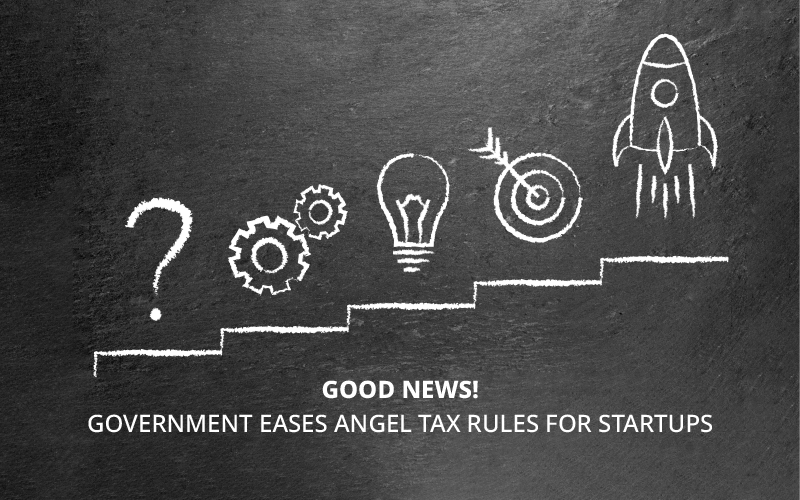In a positive kickstart to the week, the Government is looking to ease angel tax rules for startups. The new set of rules will ease burdening angel tax assessment on startups.
What is Angel Tax for startups?
Angel tax is the income tax payable by startups on capital raised via the issue of shares. This tax is levied on the investment which exceeds the fair market value of the shares sold.
The excess investment is treated as income and taxed accordingly.
The Government introduced Angel tax in the 2012 Union budget, much to the discomfort of many startups.
Currently, India levies a 30% angel tax on startups.
The motive behind the Angel Tax for startups was to prevent money laundering through funds. However, over the years, it has driven up regulatory and monetary pressure on budding firms, threatening their survival.
The Angel Tax controversy for Indian Startups:
The Government slammed down on increasing angel tax rules for startups in January last year. Startups were slapped with tax notices and found their bank accounts frozen. Over 80 startups faced a sudden financial crunch.
Some startups were told to pay up over 30% of their angel investments as tax. Angel investors were also asked to present proof of their bank statements.
What are the new Angel tax rules for startups?
The Finance minister has eased the angel tax assessment process for Startups. Under this, any action with regard to Angel Tax is taken only after an authorised official approves it.
FM: Easing of Angel Tax rules for Start Ups; several tax benefits for Start Ups announced#UnionBudget2019 #BudgetForNewIndia
— Income Tax India (@IncomeTaxIndia) July 5, 2019
Going forward, the Finance Minister has stated that special administrative arrangements will be made by the Central Board of Direct Taxes (CBDT) for any pending assessments of startups and redressal of their grievances.
- The Government proposed an e-verification mechanism so that any angel investment procured by startups are streamlined and not put under any scrutiny.
- In its new circular the Central Board of Direct Taxes said that no verification will be done by a tax assessing officer if a startup has been recognized by the Department for Promotion of Industry and Internal Trade.
- Even if a startup is not recognised by the DPIIT, scrutiny will be carried out only post the approval of an assessment officer.
- The CBDT elaborated that it will ‘summarily accept’ any pending assessment based on limited scrutiny.
Missed out on the budget this year? Catch up on the highlights of the Union Budget 2019 below:
Other reforms for angel tax:
Earlier this year, to ease angel tax reforms for startups, the Government issued a re-definition of startups. In this rule, a business will be termed a startup if its turnover has not exceeded ₹100 crore instead of the existing ₹25 crore for 1 financial year from its registration.
In addition, startups keep the term up to 10 years from its registration, instead of the current 7 years.
#Startups and investors filing returns will not be subjected to scrutiny for #AngelTax They will not be subjected any scrutiny on valuation of share premium. After several notifications and multiple budgets, this is becoming true.
— Satish V Madala (@satishcoin) July 5, 2019
Challenges for Reformed Angel Tax Rules for Startups:
While these measures provide protection from future income tax notices, startups that had already come under the income tax department’s radar are still awaiting better clarity.
This June, the Government issued letters of exemption from angel tax to over 672 startups. Now, DPIIT registers over 16,116 startups and there are more in the queue.
How can startups be exempted from angel tax scrutiny?
Startups must register with the Department for Promotion of Industry and Internal Trade and submit an undertaking, saying they are not investing in specified segments – normally suspected to be money laundering assets; unless these investments are made ‘in the ordinary course of business’.
It is officially tax season. Keeping track of invoices and accounts might seem daunting, so if you are kickstarting your business now, try out Instamojo as your online platform. Everything is compiled in one dashboard and you can create custom invoices, manage inventory and track expenses without having any prior accounting expertise.
All you need to do? Create an Instamojo account.
START YOUR BUSINESS ON INSTAMOJO

